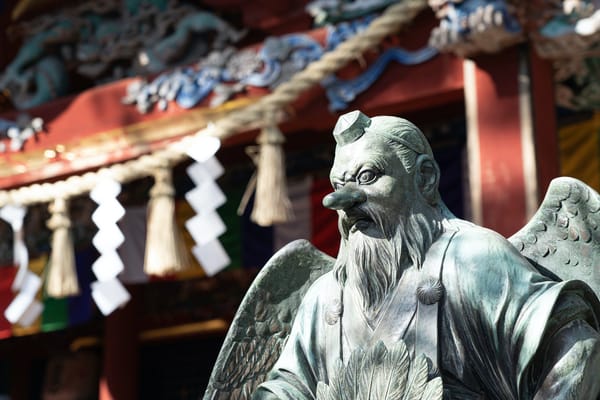The Reality of ワンオペ: Why So Many in Japan Are Left to Manage Everything Solo
Silent struggles of those carrying the weight alone—exploring why solo burdens persist across Japan’s workplaces and homes.

Have you ever felt like you’re managing everything alone—at work, at home, or in caregiving—without enough support? In Japan, this experience is called ワンオペ (wan-ope), short for “one-person operation.” Originally describing late-night convenience store workers who handled every task solo, ワンオペ now refers broadly to people who juggle overwhelming responsibilities by themselves, often without relief.
This solo burden is especially common in Japan’s current labor landscape, where economic pressures and an aging population have led to staff shortages and increased expectations on individuals to “gaman” (endure) quietly. Whether it’s parenting without help, caregiving for elderly family members, or covering multiple roles at work, many people—both men and women—experience the physical and emotional toll of ワンオペ.
Understanding this uniquely Japanese challenge is vital for anyone living or working here, especially foreign women navigating complex social and professional dynamics. In this article, we’ll explore why ワンオペ persists, who it affects most, and practical ways to cope and build support.
Why Is ワンオペ So Widespread in Japan? Labor Shortages, Culture, and Gender Roles
Japan faces a severe labor shortage due to an aging population and low birthrate, leading many businesses to reduce staff or cut costs. This means workers often cover multiple roles or work alone during night shifts—especially in convenience stores, retail, and service industries. According to a 2023 report by [source], nearly 40% of part-time workers in retail report frequent solo shifts.
Culturally, Japanese society values gaman (endurance) and social harmony, encouraging individuals to quietly bear responsibility rather than ask for help. This collective mindset can make it difficult to speak up about workload or seek assistance, which unintentionally deepens the isolation of those facing ワンオペ.
Although women historically carry the brunt of childcare and household duties, many men increasingly experience solo burdens in caregiving or workplace roles. The gendered division of labor is shifting, but the pressure to manage alone remains strong across demographics.
Where Does ワンオペ Appear Most? From Late-Night Work to Solo Parenting
- Retail and Service Jobs: Convenience store clerks, restaurant staff, and shop employees often work solo shifts, handling everything from customer service to cleaning and restocking. Despite efforts to increase staffing, irregular hours and tough conditions mean solo shifts persist.
- Parenting and Childcare: Many mothers juggle childcare, housework, and sometimes work, often without support. Single parents or those with demanding jobs can experience intense ワンオペ. Some fathers are stepping into these roles but face societal pressures and workplace challenges.
- Eldercare: With fewer family members living nearby and longer lifespans, many individuals find themselves as the sole caregiver for elderly relatives. The emotional and physical toll of eldercare without help is significant and growing.
- Workplaces: Understaffing and blurred roles lead employees to take on multiple responsibilities alone, sometimes from remote work setups. This contributes to burnout and stress.
The Mental and Physical Toll of Managing Everything Alone in Japan
Being responsible for so much alone causes real harm. Stress, exhaustion, and social isolation are common. For example, a working mother managing childcare and household duties late into the night may feel physically drained and emotionally overwhelmed. A retail clerk working a midnight shift alone might feel isolated and under pressure to solve problems without backup.
Mental health challenges, including anxiety and depression, are often linked to these intense workloads and lack of support. Yet cultural expectations can discourage admitting difficulty, making it harder to seek help or even acknowledge the strain.
Practical Ways to Cope with ワンオペ: Advice for Foreigners and Locals
- Recognize and Name It: Understanding what ワンオペ is helps you see when you’re overwhelmed and need support.
- Set Boundaries: Communicate limits with family, coworkers, or supervisors. Saying no or asking for help can feel difficult but is necessary.
- Use Available Support: Take advantage of childcare services, eldercare programs, community groups, or technology tools to ease your load.
- Build a Network: Connect with others facing similar challenges to share advice, resources, and emotional support.
- Advocate for Change: Encourage your workplace or community to adopt fairer staffing policies and caregiving support systems.
Why Addressing ワンオペ Matters for Healthier Work-Life Balance in Japan
ワンオペ is more than a buzzword—it reflects systemic issues in Japan’s labor market, social expectations, and gender roles. Recognizing and addressing it is essential to creating environments where people can thrive without sacrificing their health or well-being.
For foreign women living and working in Japan, understanding ワンオペ helps navigate challenges and fosters empathy toward local experiences. More importantly, it opens the door to meaningful conversations about sharing responsibility, setting boundaries, and building supportive communities.
Sharing the Load Starts With One Conversation
Being overwhelmed alone isn’t a sign of failure. It’s a call to connect—to ask for help, to share burdens, and to rewrite the narrative of solo responsibility. By naming ワンオペ and choosing community over isolation, we take the first step toward a healthier, more balanced Japan.
For more insights into Japanese life, work culture, and real stories like this, follow us on Instagram @coulecte and YouTube @coulectejapan. Don’t forget to sign up for our newsletter to get curated content delivered straight to your inbox.





